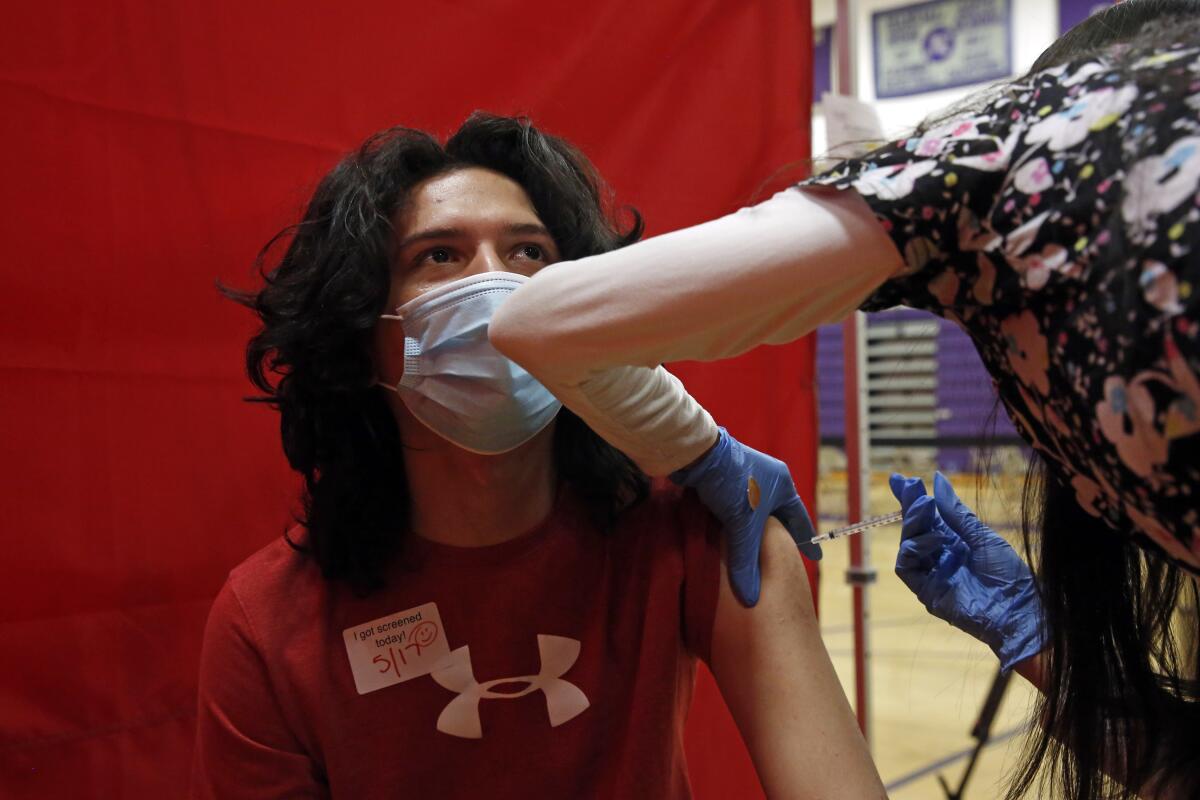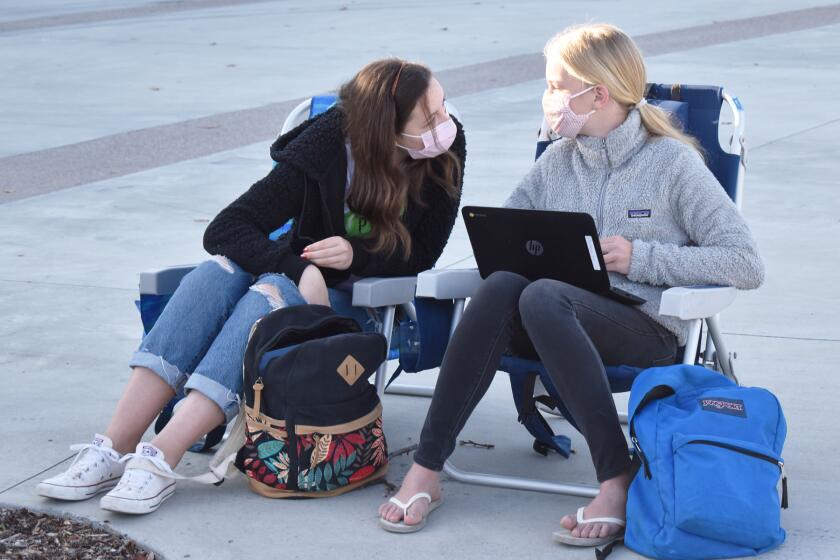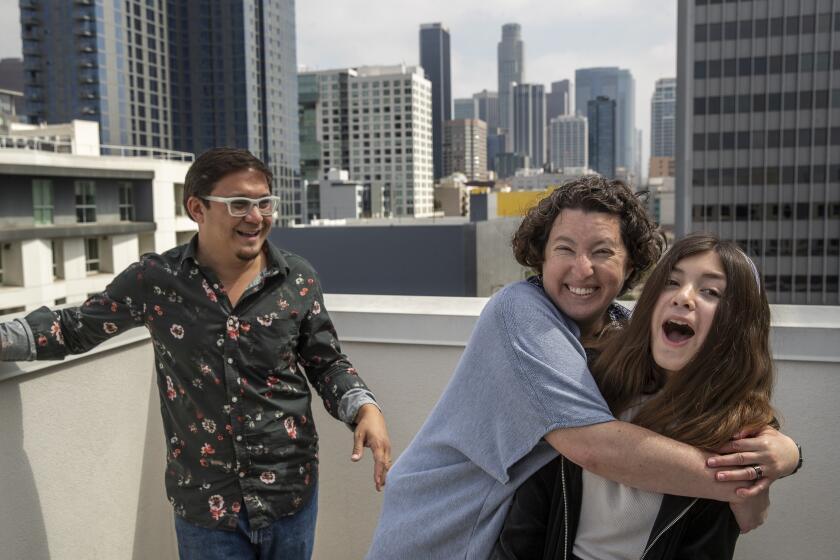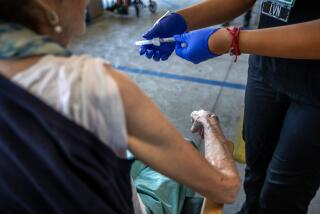Some teens don’t think they need the COVID-19 vaccine. Officials say they are wrong

Health officials are urging that teenagers get vaccinated for COVID-19, warning that youths are not immune to severe complications or to “long COVID,” which can leave patients sick for months.
Dr. Christina Ghaly, the L.A. County health services director, said she has heard from many families and teens who say they aren’t ready to be vaccinated, “largely because they think the risk of getting COVID is low” for adolescents in the newest eligible group, ages 12 to 15.
While the risk is lower among teens than adults of getting seriously ill or dying of COVID-19, thousands of children around the world have been hospitalized, and hundreds have died.
“This is a nightmare that no parent should ever have to live through, and it is now largely avoidable for those who are age 12 and over,” Ghaly said.
Though most children do recover, some will develop “long COVID,” which can last weeks or months and perhaps longer.
Symptoms can include cough, fatigue, muscle aches, headaches, palpitations, nausea, shortness of breath, sleep disorders, fever, stomach problems, anxiety, depression and difficulty concentrating or focusing, which some people call “brain fog.”
Vaccine hesitancy is making herd immunity for COVID-19 seem more elusive than ever. Could that change once the Pfizer-BioNTech vaccine is authorized for children as young as 12?
One study in Italy found that more than half of COVID-19 patients age six to 16 had at least one symptom of long COVID for more than four months, with many experiencing symptoms severe enough to impair their daily activities, Ghaly said.
Another study, from the United Kingdom, found that of teenagers infected with the coronavirus, 15% suffered from long COVID symptoms that interfered with their daily activities.
Andy Slavitt, a senior Biden administration advisor on the pandemic, said at a media briefing that one of his sons contracted COVID-19 last fall, before the vaccine was available, and still suffers from long-term symptoms.
“He’s young and fit and in the prime of his life. But six months later, he still suffers from tachycardia, shortness of breath, and ongoing and frequent flu-like symptoms,” Slavitt said. “His hands are cold to the touch. Neither he nor his parents — my wife and I — are sure how long this will last. Many young people are in this situation, and many, many have it worse.”
Some parents, citing declining case rates and the newness of the vaccine, are opting to hold off or decline when it comes to their kids.
Vaccines are the single most effective tool to protect people from any type of complications resulting from COVID-19, Ghaly said.
“Whether your concern is serious illness or death from COVID, or your concern is long haul symptoms from COVID, either way, the vaccine is the best way to protect yourself against either,” she said.
Ghaly said as soon as eligibility opened up for vaccinations for adolescents age 12 to 15, she made an appointment for her oldest child — her 13-year-old daughter — who is now five weeks from being fully vaccinated, which she said will bring her peace of mind.
Last week’s authorization of the Pfizer vaccine for teenagers and adolescents is “helping us to put this pandemic behind us,” Ghaly said.
More to Read
Sign up for Essential California
The most important California stories and recommendations in your inbox every morning.
You may occasionally receive promotional content from the Los Angeles Times.














